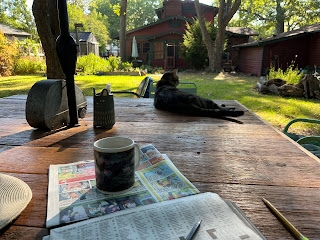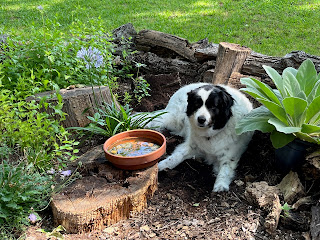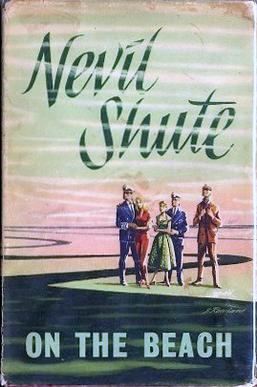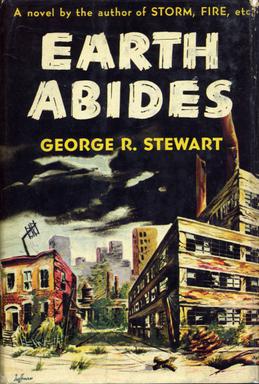 |
| First Overhead Balloon of the Season |
Another season turning: better weather, a bit of rain, lingering hot days (but cooler nights). It's a few days past the equinox, a few days short of the full Harvest moon, and I'm getting ready for eye surgery which will put me out of commission for a week or so, but should preserve the sight in my left eye. In preparation, I've been taking it easy, pottering about the garden, and trying to ignore the news. Molly has taken to spending time with me on the backyard table when I go out to drink my morning tea, so I get a dose of companionship and cuteness before the mozzies figure out that I haven't bathed in repellant.
 |
| Sunday in the Garden with Molly |
Nylah is usually over behind the garage, keeping watch for errant dogs or babies who might stroll by. Although basically quite intelligent, her Great Pyrenees genes tend to keep her in "big dumb mop"* mode, more ornamental than useful. She is pretty to watch, but seldom photogenic enough to capture. The last photo I took was in June:
 |
| Nylah Lounging in Woody's Garden |
In terms of holidays, the Celts celebrated the transition from summer to fall at the equinox, and through to Samhain (which marks the midpoint between the autumnal equinox and the winter solstice, and coincides with Halloween)--when cattle were brought down from summer pastures. I'm wondering just how long it will take the current weather patterns to complete the change, given all of the climatic upheavals we seem to be "enjoying."
One of the seasonal markers that occur fairly regularly here in the northern part of Occupied Mexico is the Plano Balloon Festival, which takes place about ten miles south of here, near where we lived while my kids were growing up. This year it coincided with the equinox (September 21-24), and the opening photo for this post (taken on September 18) probably represents someone practicing before the event. I'm not sure how much ballooning actually got done because of high winds and other kinds of threatening weather, but we haven't attended the event since The Beloved Spouse began tennis coaching, because by then the whole thing had become a circus and the team got wrangled into participating.
Celebrations of all kinds seem to have run amok in the last few decades, in part because they've become huge cash cows for businesses. The market-capitalism greed machine has overtaken the communitarian aspect of seasonal goings on, and now they all appear to run together, and the hype begins earlier and earlier each year.
A couple of days ago, while I was looking through old posts for a family recipe, I revisited the first year of this blog. The November 27th, 2007 entry (entitled "Enough") ruminated on greed--so it's clear that things haven't improved much.
Nevertheless, I keep finding small indications that some shifts might be taking place. An article in the New York Times on young Luddites (from December of 2022) suggests that technology may not have quite the grip that some of us fear, at least among Gen Z. These kids actually remind me a bit of a group of rather pretentious intellectuals from the local boys' Catholic high school and the public school I attended. We all got grounded around graduation time because we stayed out all night at one guy's house reading T. S. Eliot, discussing The Little Prince, and listening to a couple of them playing Chopin etudes--and there weren't even flip phones for us to call home with.
An article in this week's New Yorker, Sam Knight's "A Young Architect's Designs for the Climate Apocalypse" quoted from an essay by architect Anthony Dunne in the journal, Reading Design: "A Larger Reality," wherein he quotes from Ursula K. Le Guin's acceptance speech for the National Book Foundation Medal for Distinguished Contribution to American Letters in 2014, where she enjoined science fiction and fantasy, and other "writers of the imagination" to challenge the profiteers of the written word who dictate what should be written and rewarded:
Hard times are coming, when we’ll be wanting the voices of writers who can see alternatives to how we live now, can see through our fear-stricken society and its obsessive technologies to other ways of being, and even imagine real grounds for hope. We’ll need writers who can remember freedom — poets, visionaries — realists of a larger reality. (Copyright © 2014 Ursula K. Le Guin)
With this in mind, I'd like to recommend two small books that provide us with a glimpse of a possible future that avoids Armageddon and turns away from climate apocalypse: Becky Chambers's A Psalm for the Wild-Built and A Prayer for the Crown-Shy (Macmillan 2021 and 2022). For a nice essay that shows why I might be recommending these books, see Molly Templeton's "The Refreshing Hopefulness of Becky Chambers' Monk and Robot Books."
See you on the other side. Or, as Capt. Mal Reynolds would say, "Y'all gonna be here when I wake up?"**
*Not an entirely coincidental reference, because I just finished my second reading of A Prayer for the Crown-Shy last night, I found this passage describing Sibling Dex's family dogs to be a particularly appropriate description of Nylah's lineage and demeanor: "There were three of them, all shaggy herders painted in soft swirls of brown and black, smart as hell when they were at work and big dumb mops every other hour of the day" (113). It's also appropriate that the photo of Nylah I included was taken in the little garden dedicated to one of her two predecessors, Woody--of Woody and Arlo fame. Both were border collie mixes, of which breed Nylah is about half, all of these three also big dumb mops when they're not busy being herders.
**False alarm. My retina surgery has been postponed. But thanks for any concern.


